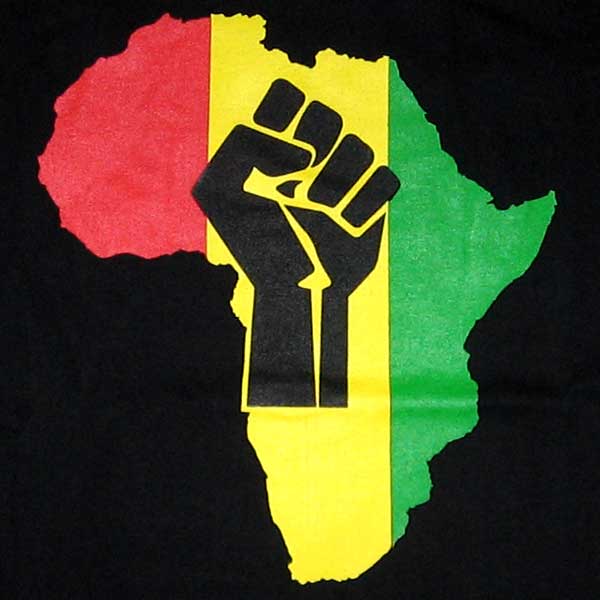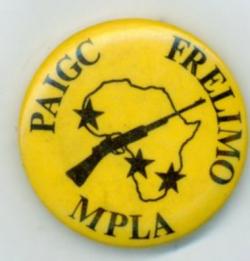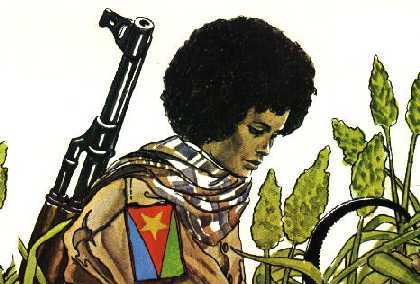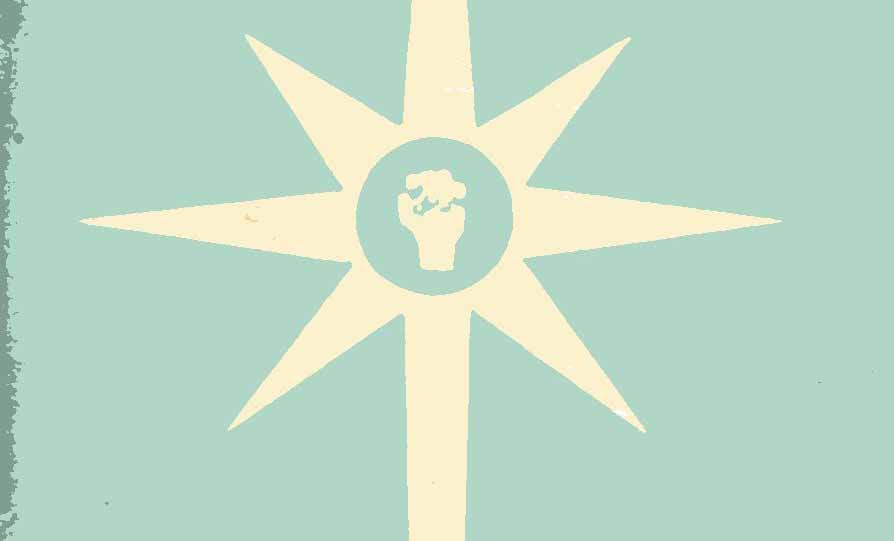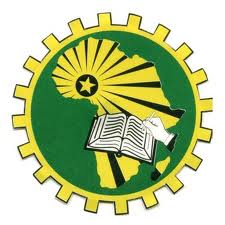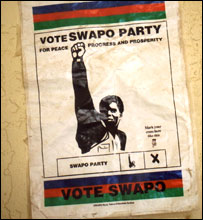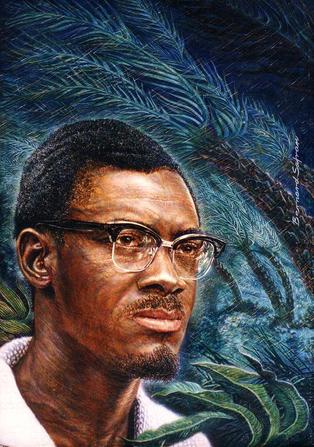African liberation movements
African liberation movements arose from a growing nationalism among previously divided African communities, the unfulfilled promise of self-determination following the end of World War II and the weakened economic and political capacities of Western Europe.
Our collection contains a wide range of materials representing liberation movements from Zimbabwe, South Africa, Namibia, Mozambique, Angola, Guinea-Bissau, Eritrea, and the Congo (DRC). Our collection also features containing Human Rights Reports from South Africa, IKWEZI, a revolutionary Azanian journal, and a sub-collection containing general resources about the continent. This collection includes audio and paper materials.
Strengths of the collection include materials on the role of women in African liberation struggles and national reconstruction, an interesting assortment of periodicals from Southern Africa, speeches and interviews with revolutionary leaders from across the continent, audio from solidarity events in the United States, and a set of human rights reports compiled during the transition from Apartheid to democracy in South Africa.
Our collection contains a wide range of materials representing liberation movements from Zimbabwe, South Africa, Namibia, Mozambique, Angola, Guinea-Bissau, Eritrea, and the Congo (DRC). Our collection also features containing Human Rights Reports from South Africa, IKWEZI, a revolutionary Azanian journal, and a sub-collection containing general resources about the continent. This collection includes audio and paper materials.
Strengths of the collection include materials on the role of women in African liberation struggles and national reconstruction, an interesting assortment of periodicals from Southern Africa, speeches and interviews with revolutionary leaders from across the continent, audio from solidarity events in the United States, and a set of human rights reports compiled during the transition from Apartheid to democracy in South Africa.
Subcollections
-
Africa- General Resources
This collection contains general resources about various themes related to the African continent. The collection draws from many types of materials (periodicals, books, pamphlets) and many different countries (Kenya, Guinea, Tanzania). -
Angola, Guinea-Bissau and Mozambique
This collection contains materials from the liberation struggles in former Portuguese colonies. Guinea Bissau gained independence in 1973 and Mozambique and Angola achieved independence in 1975. -
Anti-Apartheid Solidarity
This collection contains materials from Bay Area anti-apartheid movements of the 1980s originating from various sources, primarily Bay Area-based South African solidarity groups. -
Eritrea
Eritrea is located in the Horn of Africa. It gained its independence from Ethiopia in 1991 after a 30 year struggle for independence. -
IKWEZI
IKWEZI is a revolutionary Azanian Journal based on Marxism-Leninism-Mao Tsetung Thought. -
South Africa
This collection contains a variety of materials which focus on the anti-apartheid movement both within and outside of South Africa. -
South Africa: Human Rights Reports
The Human Rights Commission published weekly, monthly and annual reports. In addition, occasional in-depth special reports were published on important human rights issues. -
SWAPO- Namibia
SWAPO (Southwest Africa Peoples Organization) was formed in 1960 to fight for liberation in present day Namibia. Namibia gained independence from South Africa in 1990. -
Zaire-DRC
This collection contains materials from the Congolese struggle against neocolonialism and the rule of General Mobuto Sese Seko. -
Zimbabwe
This collection contains information about the liberation struggle in Zimbabwe, mainly focused on the struggle against Rhodesia and white settler rule.
Documents
Liberation music in African and African Jazz styles, all the songs have a political message. Issues raised are about Africans living under oppressive white rule, struggle for land and political power, and how oppressed people in countries like South Africa, Namibia, El Salvador, and Guatemala are being called to rise up against oppression and racism.
Zimbabwe president Robert Mugabe gives a speech to African Americans living in Harlem, at a rally on Harlem Day, August 23, 1980. On the occasion of Zimbabwe’s admission to the United Nations, Mugabe thanks people for their support of Zimbabwe’s struggle for national independence and against colonial racist white rule. He celebrates the victory of the black man in Zimbabwe and the continued struggle for non-racialism and equality. He ends his speech with the hope that the victory of Zimbabwe will inspire the oppressed Africans in South Africa and Namibia.
A representative from the New York Material Aid Campaign for ZANU interviews Joyce Kangai, Publicity Secretary of the ZANU Women’s League. Kangai talks about how the Zimbabwean elections are being discredited and attacked by outside, imperialist forces such as Britain, Ian Smith of Rhodesia, Rhodesian armed forces, and South Africa. She states that these armed forces are all harrassing ZANU, attempting to forcibly keep the organization from the polls, and trying to eliminate democratic elections by claiming ZANU violated the ceasefire and by attacking ZANU leaders and supporters & their families, and homes. She also speaks about the increased participation of ZANU women in the struggle against the oppressors, the conditions of life for women under the whites and the goals and needs of the women of ZANU.
Date: 11/13/1982Call Number: AFR 009AFormat: Cass AProgram: Songs of FreedomCollection: South Africa
Judy Jensen of the Material Aid Campaign for ZANU interviews the Chairman of South Africa’s PAC (Pan Africanist Congress). Nyati Pokela speaks about the history and purpose of the PAC and explains what Bantustans are and why they were created. He explains why the PAC and the ANC (African National Congress) deem it necessary to engage in armed struggle against the Apartheid government, and how the PAC’s leaders lead by example by taking risks for the cause. Pokelu details the role of women in the struggle and the conditions of the black population of South Africa, and explains the unequal development of different African countries toward independence. He talks about the similarities between the struggles in South Africa and the US, and calls for solidarity with the PAC and Africa’s cause.
Joyce Kangai of the ZANU (Zimbabwe African National Union) Women’s League speaks about the Zimbabwean people losing their land, outside forces imposing their power, and the oppressive nature of colonialism on language and culture. She calls the women to fight for liberation, and explains how they can be part of the struggle.
Date: 1/16/1985Call Number: AFR 012Format: Cass A & BProgram: African Activists in AmericaCollection: Africa- General Resources
Michael Warren, chairman of African Activists in America, speaks about Maurice Bishop, and introduces Samouri Marksman. Marksman speaks about struggles of African people around the world; how Europeans control Latin American economies, cultures, and societies, and the struggle for Latin American independence; the struggle to alter the slave relationship with Europeans in the Caribbean and Africa; criticizes the IMF (International Monetary Fund) ; and American politics in South Africa and the struggle against Apartheid.
Continuation of AFR 034
See enclosed note in AFR 035
Conference on liberation and reconstruction struggles in Africa, particularly in Zimbabwe, South Africa, and Namibia. A representative of SWAPO (South West African People’s Organization) speaks about the international community being in solidarity with Southern African countries, and asks for support for SWAPO’s continued struggle for liberation in Namibia. A member of the Zimbabwe admission to the United Nations speaks about the bonds formed between liberation fighters in Africa and internationally. He speaks about the leaders of ZANU (Zimbabwe African National Union), the ANC (African National Congress), and the PAC (Pan African Congress). He speaks on the history of the struggles for independence and human rights in Southern Africa, and the contued struggle for liberation. Sylvia Baraldini of the May 19th Communist Organization speaks on the National Campaign in solidarity with the ZANU Women’s League. She talks about the lessons of the struggle for liberation in Zimbabwe and looks at the process of reconstruction. A permanent representative of the PAC of Azania to the United Nations speaks about South Africa. He comments on South African president P.W. Botha’s refusal to erode Apartheid through economic means. He talks about a socialist solution incorporating equal distribution of wealth and power, and calls people to work together to fight oppression.
Call Number: AFR 039Format: Cass A & BProgram: WBAI African Liberation Day Special ProgramCollection: Africa- General Resources
An event celebrating the historical enlightenment and civilization of Africans throughout history. Dr. Ivan Van Sertima speaks on the extraordinary achievements of the Egyptians and the natives of Africa. He mentions that Africans still have cultural and ethnic heritage, and all Africans can’t simply be defined by the features of one small tribe because it perpetuates the myth of inferiority and irrelevance. He talks about African contributions to the world.
Date: 10/23/1991Call Number: AFR 053Format: Cass A & BProducers: UAM: United African MovementProgram: Global White Supremacy, Part 1Collection: Africa- General Resources
Recorded off mic.
Discussion on the effects of global white supremacy on Africans historically, legally, and psychologically. The audio begins with Imhotep Gary Byrd leading the audience in a song. John Henrik Clarke speaks how black people are the chosen people of God, and how historically, the Jews have benefited from the slave trade. He also talks about Louis Farrakhan, minister of the nation of Islam, and his contributions to the black man. He also gives a historical perspective on global white supremacy, saying that blacks do not understand white supremacy because they don’t understand white people. He asserts that whites feel superior because they aren’t rich in culture and family life like blacks are, and they want that without paying for it. Clarke calls people to read more and to become educated. He speaks about Egypt not being white because it is deep within Africa, so they cannot claim superiority over other Africans. He also speaks about the bastardization of Africans, physically through skin color, and mentally through the desire to be white. He claims there is no reason for white colonization except the whites desire for resources and to take over another people. He says that the only way to overcome global white supremacy would be for all Africans to unite.
Audio tape includes a rap song about race relations between minorities (blacks) and whites. No Justice, No Peace.
Date: 4/23/1994Call Number: AFR 058Format: Cass A & BProducers: CEMOTAP (Committee to Eliminate Media Offensive to African People)Program: The Global Media Conspiracy and Community Rally for Earl CaldwellCollection: Africa- General Resources
Audio begins abruptly on Side A
Historian John Henrik Clarke speaks about how Europe’s perception of the world influences the interpretation of the world. Its nationalism has guided its history and its colonizing of mass media. Clarke states that European media has created the image of God that does not look like a black person, but in Africa, God is seen neither as black or white, but as a loving father. Clarke also speaks about racism: racists are of all skin colors, and to overcome racism is to be with others of different ethnicities. Quote: “You get out only what you put in.” He says that while Europe will always control the world, and in spite of the mass media and multiculturalism, people can coexist and you do not have to plan this coexistence. He calls people to look at themselves universally. After Dr. Clarke speaks, the MC introduces Dr. James MacIntosh, cofounder of CEMOTAP (Committee to Elimiate Media Offensive to African People).
.
Side B is a continuation of side A. Dr. James MacIntosh speaks about the Rockaway 5 (five men who have been influential in the fight against racial discrimination against Africans in the media), and the corrupt and violent police and justice system. He speaks about confronting ABC media with tapes and statements offensive to blacks in their media, hoping to elicit a response positive to collaboration with CEMOTAP. He calls for CEMOTAP being national and more church involvement in their cause.

